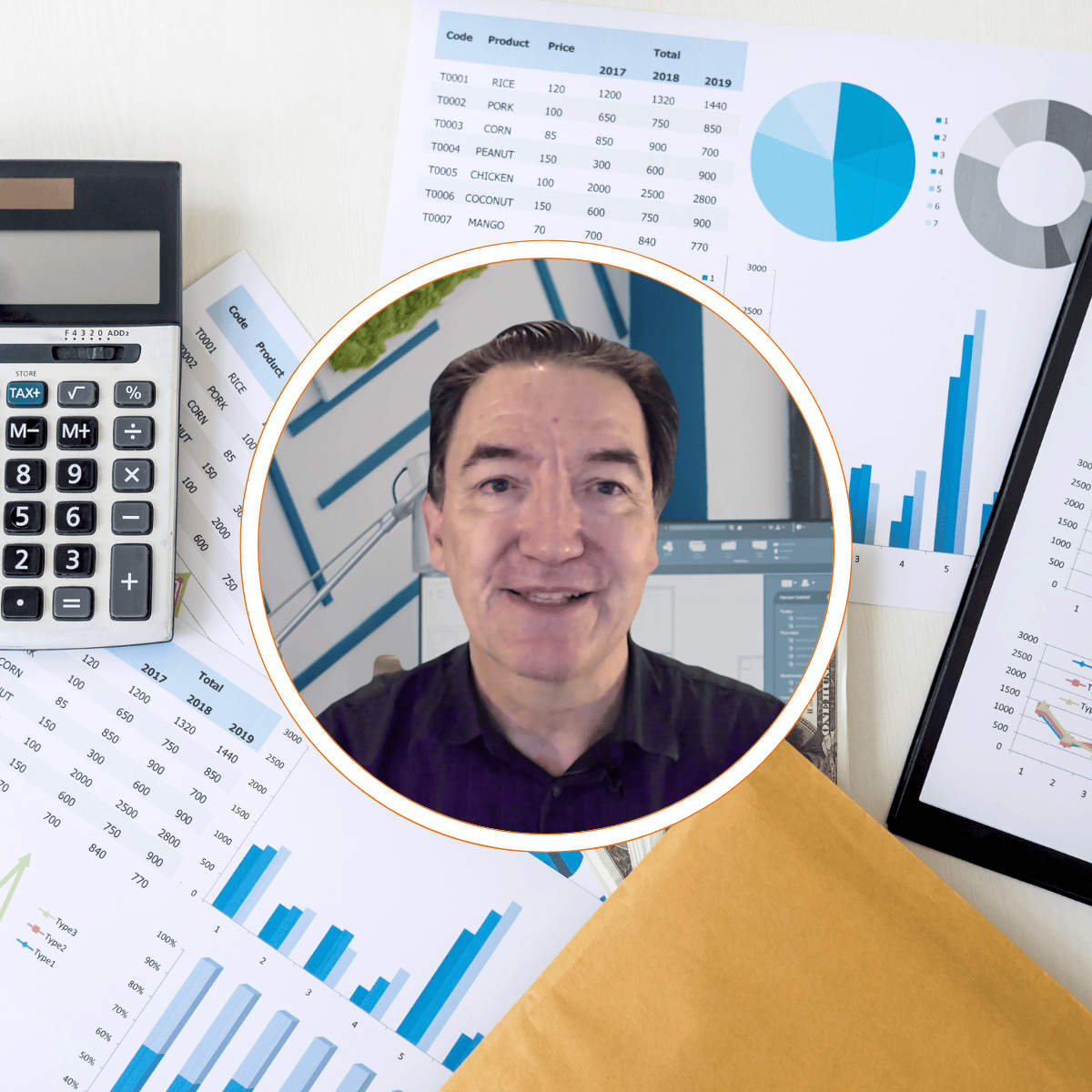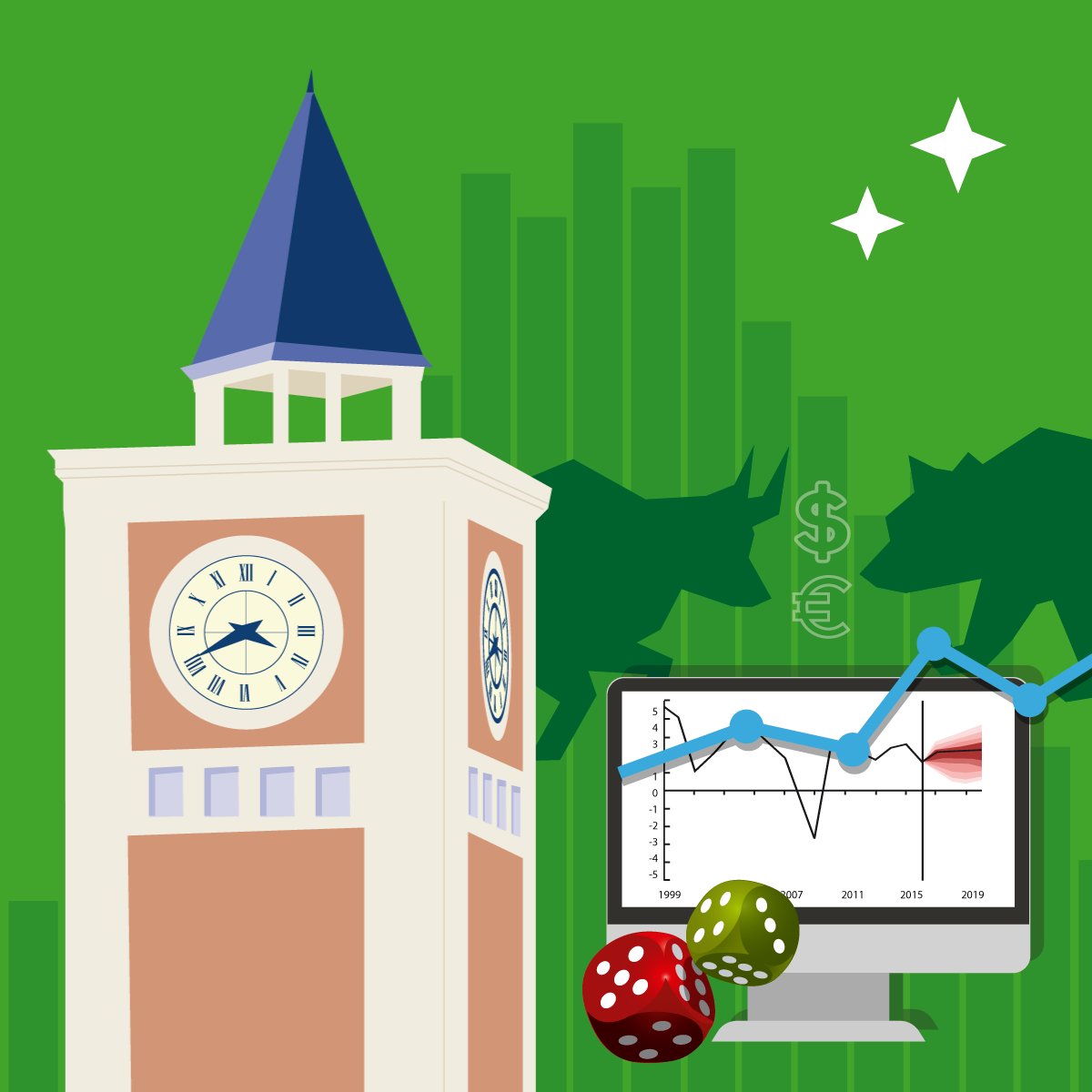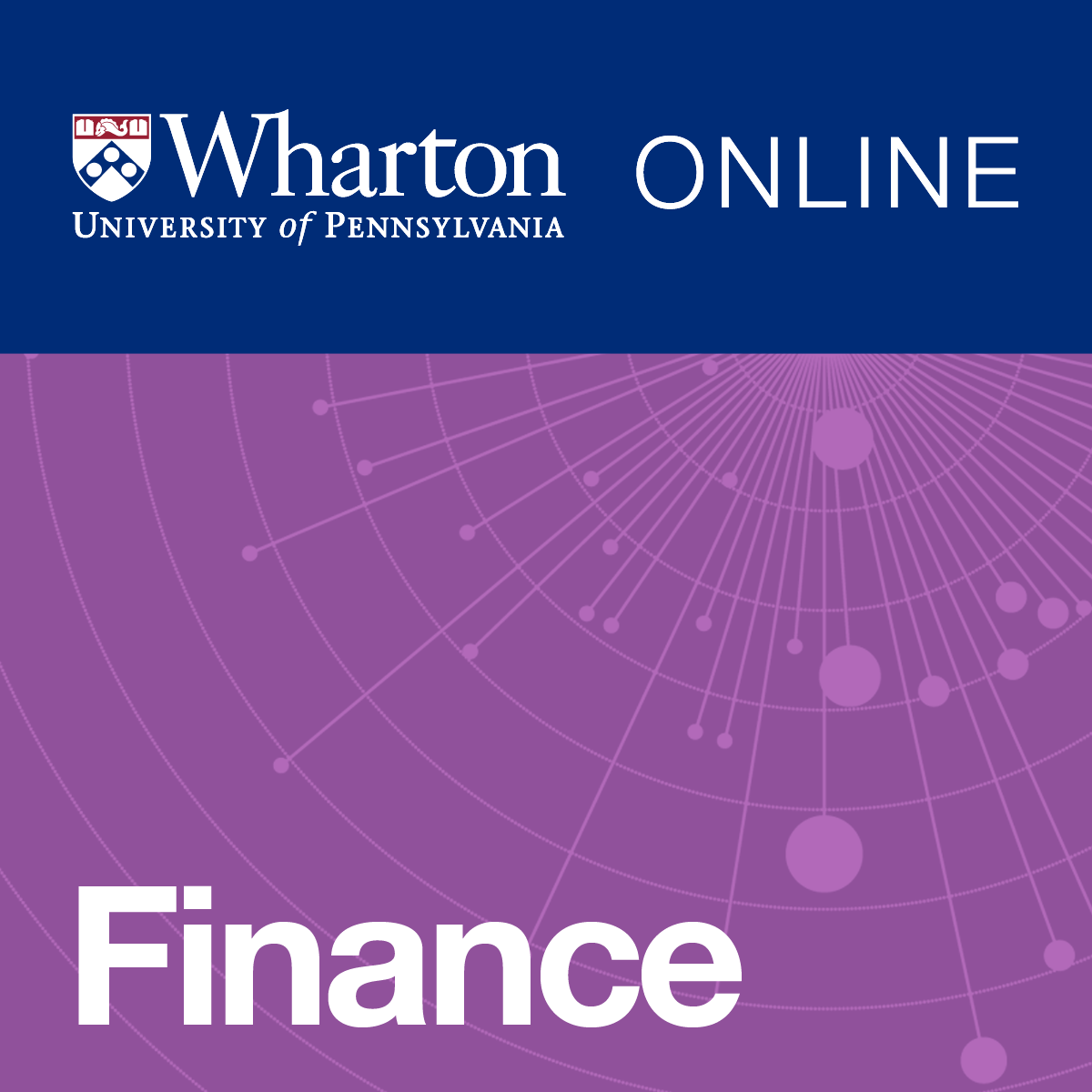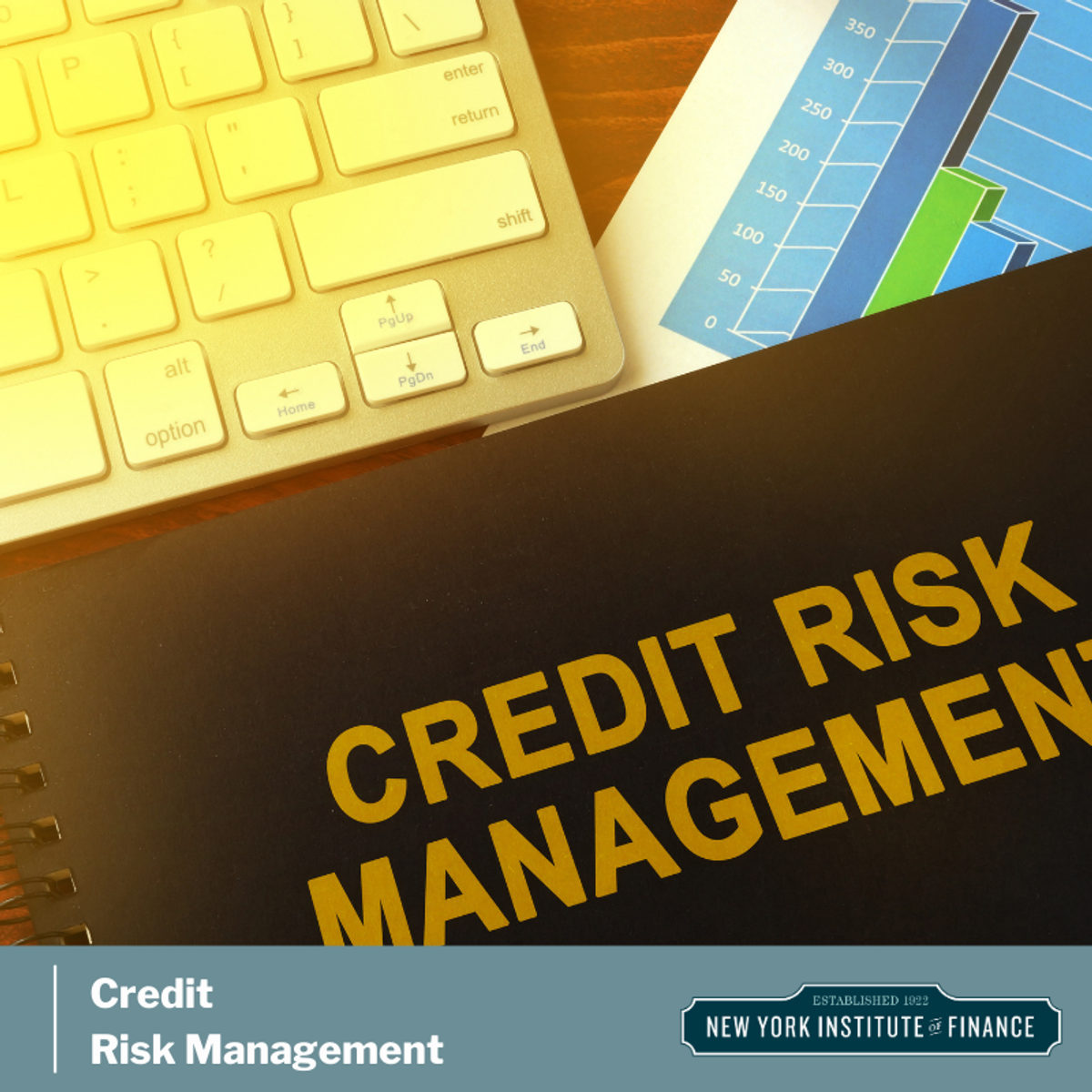Commercial Banker
A Comprehensive Guide to a Career as a Commercial Banker
Commercial banking serves as a cornerstone of the modern economy, providing essential financial services primarily to businesses, corporations, and government entities. Unlike retail banking, which focuses on individual consumers, commercial banks manage larger, more complex financial transactions and relationships. They play a vital role in facilitating business growth, managing financial risk, and ensuring the smooth operation of commerce by offering capital and financial expertise.
Working as a commercial banker can be a dynamic and rewarding career path. It offers the opportunity to engage directly with diverse businesses, understanding their unique challenges and contributing to their success stories. Professionals in this field develop deep expertise in financial analysis, risk assessment, and strategic advisory, often finding satisfaction in structuring deals that fuel economic activity and innovation.
Introduction to Commercial Banking
This section delves into the fundamentals of commercial banking, explaining its function, distinguishing it from other financial sectors, outlining its core services, and providing a brief historical overview.
What is Commercial Banking?
Commercial banking involves providing financial services specifically tailored to the needs of businesses, ranging from small local enterprises to large multinational corporations. These banks act as intermediaries, channeling funds from depositors to borrowers, thereby supporting investment and economic expansion. Their primary function is to facilitate commerce by offering credit, managing cash flow, and providing other essential financial tools.
The role of commercial banks extends beyond simple lending. They offer sophisticated financial advice, helping businesses navigate complex financial landscapes, manage risk, and optimize their capital structure. By supporting businesses, commercial banks contribute significantly to job creation, innovation, and overall economic stability.
Understanding the flow of money and the systems governing it is fundamental. While this course focuses on the broader monetary system, its principles underpin commercial banking operations.
Commercial Banking vs. Other Banking Sectors
It's crucial to distinguish commercial banking from other segments like retail banking, investment banking, and private banking. Retail banks primarily serve individual consumers with products like savings accounts, mortgages, and personal loans. While commercial banks may serve high-net-worth individuals, their core focus remains on businesses and institutions.
Investment banking deals with capital raising (like IPOs and bond issuances) and advisory services for mergers and acquisitions (M&A), often involving large, complex transactions distinct from the typical lending and operational services of commercial banks. Private banking caters specifically to high-net-worth individuals, offering personalized wealth management services.
While these sectors sometimes overlap, particularly in large universal banks, commercial banking's distinct focus is on the financial health and operational needs of businesses. This specialization allows commercial bankers to develop deep industry knowledge and provide tailored solutions.
This course offers a glimpse into investment banking, highlighting the differences in focus and operations compared to commercial banking.
Core Services Offered
Commercial banks provide a wide array of services designed to meet the financial needs of businesses. Core offerings include various types of loans, such as term loans for capital investments, lines of credit for operational flexibility, and commercial real estate financing. These lending activities are central to helping businesses manage cash flow, fund expansion, and undertake new projects.
Beyond lending, treasury management services are critical. These help businesses optimize their cash flow, manage payments and receivables efficiently, and mitigate financial risks like currency fluctuations or interest rate changes. Services often include cash concentration, lockbox services, wire transfers, and foreign exchange services.
Other important services include trade finance (facilitating international trade through letters of credit and guarantees), equipment leasing, and increasingly, advisory services related to capital structure, risk management, and strategic financial planning. These comprehensive offerings make commercial banks indispensable partners for businesses.
Understanding the fundamentals of credit is essential for grasping the core lending services provided by commercial banks.
A Brief Look Back
Commercial banking has evolved significantly over centuries. Early forms existed in ancient civilizations, but modern commercial banking traces its roots to Renaissance Italy and the merchant banks of Europe. These institutions facilitated trade and provided capital, laying the groundwork for today's banking systems.
The Industrial Revolution spurred demand for more sophisticated banking services to finance large-scale industrial projects. Throughout the 19th and 20th centuries, regulations shaped the industry, separating commercial and investment banking activities in some jurisdictions (like the Glass-Steagall Act in the U.S.) and later allowing reintegration.
Events like the Great Depression and the 2008 financial crisis led to significant regulatory reforms aimed at increasing stability and transparency. Today, commercial banking continues to adapt, driven by technological advancements, globalization, and evolving customer expectations, while its fundamental role in supporting commerce remains constant.
These books offer historical context and insights into major financial events that have shaped modern banking.
Role of a Commercial Banker
This section explores the specific duties, daily activities, performance expectations, and collaborative aspects of working as a commercial banker.
Core Duties and Responsibilities
The primary responsibility of a commercial banker is managing relationships with business clients. This involves understanding their financial needs, strategic goals, and industry context to provide appropriate banking solutions. Bankers act as trusted advisors, helping clients navigate financial decisions and achieve their objectives.
A critical aspect of the role is credit analysis and risk assessment. Commercial bankers evaluate the creditworthiness of potential borrowers by analyzing financial statements, market conditions, and management quality. They structure loan proposals, negotiate terms, and monitor existing loans to manage the bank's risk exposure effectively.
Business development is also key. Commercial bankers actively seek new client relationships and work to expand existing ones by cross-selling various bank products and services, such as treasury management, trade finance, or investment services. Maintaining strong client relationships is paramount for long-term success.
This course focuses on the skills needed to become a commercial loan broker, which shares similarities with the client acquisition and deal structuring aspects of commercial banking.
A Typical Day for a Commercial Banker
The daily routine of a commercial banker is often varied and dynamic. A significant portion of the day might be spent communicating with clients – discussing loan requests, providing updates, or addressing concerns via phone calls, emails, or in-person meetings. Building and maintaining these relationships is central to the job.
Bankers also dedicate time to analyzing financial data, preparing credit memos, and reviewing loan documents. This involves detailed work with spreadsheets, financial models, and internal bank systems. Staying organized and managing multiple deals simultaneously is essential.
Internal meetings with credit committees, risk managers, or product specialists are common to discuss potential deals, review existing portfolios, and coordinate service delivery. Networking activities, such as attending industry events or community functions, may also be part of the workflow to generate new business leads.
Measuring Success
Success for a commercial banker is typically measured by a combination of quantitative and qualitative metrics. Key performance indicators (KPIs) often include loan volume originated, deposit growth, revenue generated from fees (e.g., treasury management services), and the number of new client relationships established.
Portfolio quality is another crucial measure. This involves managing credit risk effectively, minimizing loan defaults, and ensuring compliance with bank policies and regulations. Maintaining a healthy loan portfolio reflects sound judgment and diligent monitoring.
Client satisfaction and retention are also vital indicators of success. A banker's ability to build trust, provide valuable advice, and deliver excellent service contributes significantly to the bank's reputation and long-term profitability. Performance reviews often consider feedback from clients and colleagues.
Collaboration Within the Bank
Commercial bankers rarely work in isolation. They collaborate extensively with various internal teams to structure deals and serve clients effectively. Credit analysts provide in-depth financial analysis, while risk managers assess the overall risk profile of proposed transactions.
Treasury management specialists help structure cash management solutions, and capital markets teams might be involved in larger, more complex financing needs. Collaboration with compliance officers ensures that all activities adhere to regulatory requirements.
Effective teamwork and communication skills are therefore essential for navigating the internal processes of the bank and delivering seamless service to clients. Understanding the roles and expertise of colleagues allows bankers to leverage the full resources of the institution for their clients' benefit.
Skills and Competencies
Success in commercial banking requires a blend of technical expertise, interpersonal abilities, regulatory knowledge, and technological proficiency. This section outlines the key skills needed.
Essential Technical Skills
Strong analytical skills are fundamental. Commercial bankers must be adept at interpreting financial statements, assessing cash flow, and understanding key financial ratios to evaluate a company's health and creditworthiness. Proficiency in financial modeling is often required to project future performance and structure financing solutions.
Credit analysis is a core competency. This involves understanding different types of credit risk, applying frameworks like the "5 Cs of Credit" (Character, Capacity, Capital, Collateral, Conditions), and making informed lending decisions. Knowledge of loan structuring, documentation, and relevant legal aspects is also necessary.
A solid understanding of accounting principles is crucial for interpreting financial data accurately. Familiarity with economic principles helps bankers understand the broader market context influencing their clients' businesses.
These courses provide foundational knowledge in credit analysis, financial analysis, and accounting, which are critical technical skills.
This book provides a comprehensive overview of financial accounting and reporting standards.
Crucial Soft Skills
Excellent communication skills are paramount. Commercial bankers must articulate complex financial concepts clearly to clients, negotiate effectively, and present proposals persuasively to internal committees. Strong written communication is needed for reports and correspondence.
Relationship management is at the heart of the role. Building trust, demonstrating empathy, and actively listening to understand client needs are essential for fostering long-term partnerships. Problem-solving skills help bankers devise creative solutions to client challenges.
Negotiation skills are frequently used when discussing loan terms, pricing, and covenants. Time management and organizational skills are vital for handling multiple client relationships and complex transactions simultaneously.
This course focuses on developing business English skills specifically for finance professionals, enhancing communication effectiveness.
Understanding Regulations and Compliance
Commercial banking is a highly regulated industry. Bankers must possess a strong understanding of relevant laws and regulations, including those related to lending practices, anti-money laundering (AML), Know Your Customer (KYC) requirements, and data privacy.
Compliance is not just a legal obligation but also integral to managing risk. Adhering to internal bank policies and procedures is essential for maintaining the institution's integrity and stability. Staying updated on regulatory changes is an ongoing requirement.
Knowledge of specific frameworks like Basel III, which sets standards for bank capital adequacy, stress testing, and market liquidity risk, is increasingly important, especially in larger institutions or roles with broader risk management responsibilities.
This comprehensive course covers banking operations, including crucial risk management and compliance aspects.
Technology in Commercial Banking
Proficiency with various technologies is essential in modern commercial banking. Customer Relationship Management (CRM) systems are widely used to manage client interactions, track sales pipelines, and coordinate activities across teams.
Strong skills in spreadsheet software like Microsoft Excel are indispensable for financial analysis, modeling, and reporting. Familiarity with the bank's internal loan origination and processing systems is also necessary.
Increasingly, data analytics tools are being employed to gain deeper insights into client behavior, market trends, and risk patterns. While specialized data analysts might handle complex modeling, commercial bankers benefit from being comfortable interpreting data and using analytics platforms to inform their decisions.
This course focuses on advanced Excel skills, a vital tool for financial professionals.
Formal Education Pathways
A strong educational foundation is typically required to enter and progress in the field of commercial banking. This section outlines common academic routes and relevant certifications.
Undergraduate Foundations
A bachelor's degree is generally the minimum educational requirement for entry-level positions in commercial banking, such as credit analyst or relationship associate roles. Degrees in Finance, Economics, Accounting, or Business Administration are most common and provide relevant foundational knowledge.
Coursework in these programs typically covers financial statement analysis, corporate finance, microeconomics and macroeconomics, statistics, and accounting principles. These subjects equip students with the analytical tools needed for the role.
Internships during undergraduate studies are highly valuable. They provide practical experience, exposure to the banking environment, and networking opportunities that can significantly enhance job prospects upon graduation.
These courses cover fundamental finance and economic principles relevant to undergraduate studies.
Advanced Studies
While not always required, a Master of Business Administration (MBA) or a specialized master's degree (e.g., Master's in Finance) can accelerate career progression, particularly towards management and senior leadership roles. These programs offer deeper knowledge in finance, strategy, and leadership.
An MBA often provides a broader business perspective and develops strategic thinking and leadership skills. A Master's in Finance offers more specialized technical expertise in areas like financial modeling, valuation, and risk management. The choice between them depends on individual career goals.
Some individuals pursue advanced degrees after gaining several years of work experience, leveraging their practical knowledge to maximize the benefits of graduate education. Banks sometimes sponsor high-potential employees for graduate studies.
These courses delve into corporate finance and financial concepts often covered in advanced degree programs.
Professional Certifications
Professional certifications can enhance credibility and demonstrate specialized expertise. The Chartered Financial Analyst (CFA) designation is highly respected in the finance industry, covering investment analysis, portfolio management, and ethics. While more common in investment management, it's valuable for commercial bankers dealing with complex financial structures.
The Financial Risk Manager (FRM) certification, offered by the Global Association of Risk Professionals (GARP), focuses specifically on risk management practices. This is particularly relevant for commercial bankers involved in credit risk assessment and portfolio management.
Other certifications, such as the Certified Treasury Professional (CTP) for those specializing in treasury management, or specific lending certifications offered by banking associations, can also be beneficial depending on the specific role and career path.
This course serves as an examination component for a professional certificate in credit and risk analysis.
Research Frontiers in Commercial Banking
Academic research continually influences commercial banking practices. Areas of study include advancements in credit risk modeling, the impact of financial regulations on bank behavior and lending, the role of technology (like AI and blockchain) in transforming banking operations, and the implications of macroeconomic trends for the sector.
Research on behavioral finance sheds light on decision-making processes within banks and among clients. Studies on sustainable finance and Environmental, Social, and Governance (ESG) factors are increasingly relevant as banks integrate these considerations into their lending and investment strategies.
Staying aware of relevant academic research can provide commercial bankers with new perspectives and tools, helping them anticipate industry shifts and adapt their practices accordingly. Leading business schools and financial institutions often publish research relevant to the field.
These courses touch upon capital markets and financial development, areas influenced by ongoing research.
Online and Self-Directed Learning
For those transitioning into commercial banking or supplementing formal education, online courses and self-study offer flexible and accessible ways to acquire necessary skills and knowledge. OpenCourser provides a vast library to explore finance and economics courses.
Key Topics for Online Study
Prioritizing specific topics can make self-directed learning more effective. Foundational areas include financial statement analysis, corporate finance principles, and credit risk assessment. Understanding different types of loans and financing structures is also crucial.
Given the regulatory environment, courses covering banking regulations, compliance requirements (like AML/KYC), and ethical considerations are highly valuable. Developing proficiency in financial modeling using software like Excel is another key area easily addressed through online learning.
For those targeting specific niches within commercial banking, courses on treasury management, trade finance, or specific industry analysis (e.g., real estate finance, healthcare finance) can provide specialized knowledge.
These courses cover essential banking operations, finance fundamentals, and risk management, suitable for targeted online learning.
Applying Knowledge Through Projects
Passive learning is often insufficient. Applying concepts through practical projects solidifies understanding and builds a portfolio demonstrating capabilities. Learners can undertake projects like creating mock loan proposals for hypothetical companies, analyzing the financial statements of publicly traded firms, or building discounted cash flow (DCF) models.
Developing a mock loan portfolio, assessing the creditworthiness of different fictional borrowers, and justifying lending decisions can simulate real-world tasks. Participating in online case competitions or using simulation platforms can also provide valuable hands-on experience.
These projects not only reinforce learning but also serve as tangible examples of skills during job interviews, especially for those transitioning from different fields without direct banking experience.
This course guides learners through building a complete DCF valuation model, a practical project valuable for finance roles.
Combining Learning with Networking
Self-directed learning should ideally be paired with networking efforts. Connecting with professionals currently working in commercial banking can provide invaluable insights, mentorship, and potential job leads. Informational interviews are a great way to learn about different roles and bank cultures.
Attending industry events, joining professional organizations (like local CFA societies or banking associations), and engaging in online forums or LinkedIn groups related to commercial banking can expand one's network. Sharing learning progress or project work can attract attention and demonstrate initiative.
Networking helps bridge the gap between theoretical knowledge gained through self-study and the practical realities of the industry, making a career transition smoother and more informed. It's important to approach networking with genuine curiosity and a focus on building relationships, not just seeking immediate job opportunities.
Choosing Quality Online Resources
The abundance of online learning resources requires careful selection. Look for courses offered by reputable institutions, experienced instructors, or established financial training providers. Platforms like OpenCourser aggregate courses and provide tools to assess quality.
Features like summarized reviews, syllabi previews, and instructor credentials help evaluate course suitability. OpenCourser's "Traffic Lights" section can highlight potential strengths and weaknesses at a glance. Consider courses that offer practical exercises, case studies, or capstone projects for hands-on application.
Supplement courses with reputable books, industry publications (like The Wall Street Journal or The Banker), and reports from consulting firms or regulatory bodies. For those managing their learning journey, the OpenCourser Learner's Guide offers tips on creating study plans and staying disciplined.
These books are standard texts in finance and offer in-depth knowledge complementing online courses.
Commercial Banker Career Progression
A career in commercial banking typically offers a structured progression path with opportunities for advancement and specialization. This section outlines the typical trajectory.
Starting Your Career
Most careers in commercial banking begin in entry-level roles such as Credit Analyst or Relationship Associate. Credit Analysts focus on analyzing the financial health of potential borrowers, underwriting loans, and monitoring existing credit exposures. This role provides a strong foundation in financial analysis and risk assessment.
Relationship Associates often support senior bankers in managing client relationships, handling administrative tasks, and learning the sales and service aspects of the role. Some banks offer rotational programs where new hires gain exposure to different areas of commercial banking.
These initial years are crucial for developing core technical skills, understanding bank processes, and building internal networks. Strong performance in these roles typically leads to promotion to a relationship manager position.
Moving Up the Ladder
After gaining experience, bankers typically progress to roles like Relationship Manager (RM) or Commercial Lender. RMs take direct responsibility for managing a portfolio of business clients, identifying their needs, proposing solutions, and growing the relationship.
With continued success and experience, bankers can advance to titles like Assistant Vice President (AVP), Vice President (VP), and Senior Vice President (SVP). These promotions often come with responsibility for larger, more complex client relationships, higher lending authority, and potentially team leadership duties.
Specialization may occur at this stage, with bankers focusing on specific industries (e.g., healthcare, technology, real estate) or product areas (e.g., treasury management, international trade finance).
Reaching Senior Leadership
Top performers may eventually reach executive-level positions. Roles like Regional Manager involve overseeing multiple banking teams and branches within a geographic area, setting strategic direction, and managing overall performance.
Further advancement can lead to roles managing specific business lines (e.g., Head of Middle Market Banking, Head of Treasury Services) or functional areas (e.g., Chief Credit Officer, Chief Risk Officer) for the entire bank or a major division.
The path to the C-suite (e.g., Chief Executive Officer, Chief Financial Officer) is highly competitive, often requiring extensive experience across different banking functions, strong leadership capabilities, and a proven track record of driving results.
Exploring Adjacent Fields
The skills developed in commercial banking are transferable to various other sectors within finance and beyond. Experienced commercial bankers may transition into roles in investment banking, private equity, venture capital, or corporate development within non-financial companies.
The rise of financial technology (fintech) has created new opportunities. Commercial bankers with strong industry knowledge and client relationship skills are valuable to fintech companies developing lending platforms, payment solutions, or banking software.
Consulting firms, particularly those specializing in financial services, also recruit experienced bankers for their expertise. Regulatory bodies or roles in corporate finance departments are other potential career paths.
Industry Trends and Disruptions
The commercial banking landscape is constantly evolving, influenced by technology, regulation, economic shifts, and changing client expectations. Staying informed about these trends is crucial for career longevity.
The Digital Transformation of Banking
Digital technologies are profoundly reshaping commercial banking. Automation is streamlining processes like loan origination and underwriting. Artificial intelligence (AI) is being used for more sophisticated risk assessment, fraud detection, and personalized client insights.
Online and mobile banking platforms are becoming standard, offering clients greater convenience and self-service capabilities. Banks are investing heavily in digital infrastructure to improve customer experience, enhance operational efficiency, and compete with nimble fintech challengers. According to a report by McKinsey, digital leaders in banking significantly outperform their peers.
This digital shift requires commercial bankers to become more tech-savvy, comfortable using new tools, and adept at integrating digital solutions into their client offerings. Understanding data analytics is becoming increasingly important.
Navigating Regulatory Landscapes
The regulatory environment remains complex and dynamic. Post-crisis reforms like Basel III continue to impact capital requirements and risk management practices. New regulations related to cybersecurity, data privacy (like GDPR), and consumer protection also affect operations.
A growing focus is on Environmental, Social, and Governance (ESG) factors. Regulators and stakeholders are increasingly expecting banks to assess and manage climate-related financial risks and support the transition to a sustainable economy. This involves integrating ESG considerations into lending decisions and reporting frameworks.
Keeping abreast of regulatory changes and ensuring strict compliance is paramount for banks and individual bankers to avoid penalties and reputational damage. This requires ongoing training and vigilance.
Evolving Corporate Lending Practices
Corporate lending is adapting to changing economic conditions and competitive pressures. There's a growing trend towards more tailored and flexible financing solutions beyond traditional term loans and lines of credit. This includes asset-based lending, structured finance, and venture debt for high-growth companies.
The rise of alternative lenders, including private credit funds and fintech platforms, has increased competition, particularly in the middle market segment. Banks are responding by enhancing their value proposition, leveraging relationships, and offering integrated service bundles.
Data analytics is playing a larger role in pricing loans, assessing risk more dynamically, and identifying cross-selling opportunities within existing client portfolios.
These courses explore various aspects of funding and capital structure relevant to modern lending practices.
Geopolitical Influences on Global Banking
Geopolitical events, trade tensions, and shifts in international relations significantly impact global commercial banking. Changes in trade policies can affect clients involved in international business, influencing demand for trade finance and foreign exchange services.
Sanctions regimes and cross-border regulations require careful navigation for banks operating internationally. Geopolitical instability can increase credit risk in certain regions and impact global economic growth, affecting overall lending activity.
Banks with international operations need robust frameworks to monitor geopolitical risks and adapt their strategies accordingly. Commercial bankers dealing with multinational clients must stay informed about global developments and their potential impact.
These resources delve into international finance and related policy frameworks.
Ethical and Risk Considerations
Commercial banking involves significant responsibilities and potential ethical challenges. Navigating these issues with integrity is fundamental to the profession.
Navigating Conflicts of Interest
Commercial bankers often face potential conflicts of interest. For example, recommending bank products that generate higher fees might conflict with providing the most suitable advice for a client's needs. Balancing the bank's profitability goals with the client's best interests requires careful judgment and ethical awareness.
Transparency is key. Disclosing potential conflicts and clearly explaining the rationale behind recommendations helps build trust and maintain ethical standards. Bank policies and regulatory guidelines provide frameworks for managing such situations, but personal integrity remains crucial.
Acting as a fiduciary, or putting the client's interests first, is a core principle, even when not legally mandated in all situations. Ethical conduct builds long-term relationships and upholds the reputation of both the banker and the institution.
The Responsibility of Managing Credit Risk
A core function of commercial banking is extending credit, which inherently involves risk. Bankers have a responsibility to the bank's depositors and shareholders to make prudent lending decisions, carefully assessing a borrower's ability and willingness to repay.
Overly aggressive lending can lead to high default rates, potentially jeopardizing the bank's stability. Conversely, overly conservative lending can stifle economic growth and deny creditworthy businesses the capital they need. Finding the right balance requires rigorous analysis and sound judgment.
Monitoring existing loans and proactively addressing potential problems is also part of responsible risk management. This involves maintaining open communication with borrowers and taking appropriate action when warning signs appear.
This book discusses financial ratios, a key tool in assessing credit risk.
Protecting Client Data and Privacy
Commercial banks handle vast amounts of sensitive client information, including financial data, business strategies, and personal details of executives. Protecting this data from breaches and unauthorized access is a critical responsibility.
Strict adherence to data privacy regulations (like GDPR or CCPA) and robust cybersecurity measures are essential. Bankers must be vigilant about following security protocols, handling confidential information appropriately, and reporting any suspected breaches immediately.
Maintaining client confidentiality builds trust and is fundamental to the banking relationship. Breaches of privacy can lead to severe financial penalties, legal action, and irreparable damage to the bank's reputation.
Learning from Ethical Case Studies
Examining past ethical failures and dilemmas in the financial industry provides valuable lessons. Case studies involving issues like predatory lending, market manipulation, or misleading sales practices highlight the potential consequences of unethical behavior.
Analyzing these situations helps bankers develop their ethical reasoning skills and recognize potential pitfalls in their own work. Many banks incorporate ethical training and case study discussions into their compliance programs.
Cultivating an ethical culture within the bank, where employees feel comfortable raising concerns and discussing ethical challenges openly, is crucial for preventing misconduct and promoting responsible banking practices.
Global Opportunities and Mobility
Commercial banking offers opportunities to work in diverse geographic locations and engage with international markets, although specific roles and requirements vary.
Where are the Opportunities?
Demand for commercial bankers exists globally, but concentrations vary. Major financial centers like New York, London, Hong Kong, Singapore, and Frankfurt naturally have numerous opportunities. Emerging markets often present significant growth potential as their economies develop and businesses require more sophisticated banking services.
Within a country, opportunities are often concentrated in larger cities and regional economic hubs where businesses congregate. However, smaller community banks also play a vital role in serving local businesses, offering different types of career experiences.
Industry specialization can also influence location. For example, roles focused on energy finance might be more prevalent in regions with significant oil and gas activity, while technology banking roles might cluster near tech hubs.
This course explores financial development globally, touching on differences between markets.
Working Abroad as a Commercial Banker
Many large commercial banks have international operations, offering opportunities for expatriate assignments or roles focused on cross-border business. These positions often involve working with multinational corporations or facilitating international trade and investment.
Securing an international role typically requires strong performance, relevant language skills (depending on the region), and adaptability. Experience working with international clients or in areas like trade finance can be advantageous.
Expatriate assignments can provide valuable cross-cultural experience and broaden career horizons, but they also involve challenges like adjusting to new work environments, cultures, and regulatory landscapes.
Understanding international financial management is key for roles with a global scope.
The Importance of Cultural Competence
Working effectively in a global context, or even within diverse domestic markets, requires strong cultural competency. Understanding different business practices, communication styles, and social norms is essential for building rapport and trust with international clients and colleagues.
Misunderstandings arising from cultural differences can hinder negotiations, damage relationships, and lead to costly errors. Developing cultural sensitivity and adaptability is crucial for success in international banking roles.
This involves more than just language skills; it requires genuine curiosity, respect for diversity, and the ability to adjust one's approach based on the cultural context.
Understanding International Regulations
Operating across borders means navigating a complex web of international regulations. This includes varying rules regarding lending practices, capital requirements, anti-money laundering (AML) standards, sanctions compliance, and data privacy.
Bankers involved in international business must have a working knowledge of the relevant regulations in the jurisdictions where their clients operate or where transactions occur. Banks typically have specialized compliance teams to support this, but individual awareness is necessary.
Coordination between regulators in different countries (e.g., through the Basel Committee on Banking Supervision) aims to create more harmonized standards, but significant national variations persist, requiring careful attention.
This book provides insights into sovereign wealth funds, relevant in international finance.
Frequently Asked Questions
Here are answers to some common questions prospective commercial bankers may have about the career path.
Education and Experience Requirements
What undergraduate degree best prepares for this career? Degrees in finance, economics, accounting, or business administration are the most traditional and relevant paths. They provide the core knowledge in financial analysis, economic principles, and business operations needed for the role. However, banks increasingly value diverse perspectives, and individuals with degrees in other quantitative fields (like mathematics or engineering) or even liberal arts, combined with strong analytical and interpersonal skills, can also succeed, often starting in analyst programs.
Is prior banking experience mandatory for entry-level roles? While prior banking internships are highly advantageous and often preferred, they are not always strictly mandatory, especially for graduates entering formal training programs. Demonstrating relevant skills through coursework, projects, other finance-related internships (e.g., wealth management, corporate finance), leadership roles in student organizations, and strong academic performance can compensate for a lack of direct banking experience. Enthusiasm for the industry and strong analytical and communication skills are key.
Compensation, Work-Life, and Career Transitions
How does compensation compare to investment banking? Generally, commercial banking compensation (salary plus bonus) is lower than in investment banking, particularly at the entry and mid-levels. Investment banking roles often involve longer hours and higher-pressure deal environments, which is reflected in pay. However, commercial banking still offers competitive compensation, often with a better work-life balance compared to the most demanding investment banking divisions. Compensation typically increases significantly with experience and seniority.
What is the typical work-life balance? Work-life balance in commercial banking can vary depending on the specific role, bank culture, and deal flow. While generally considered better than in investment banking or high-frequency trading, it's not a standard 9-to-5 job. Bankers often work more than 40 hours per week, especially when meeting deadlines or handling urgent client requests. Client meetings and networking events can also extend work hours. However, predictability tends to be higher than in some other finance fields.
Can commercial bankers transition to fintech roles? Yes, transitioning to fintech is increasingly common. Commercial bankers possess valuable industry knowledge, client relationship skills, and an understanding of financial products and regulations that are highly sought after by fintech companies, particularly those focused on lending, payments, or banking-as-a-service. Experience in areas like credit analysis, risk management, or digital banking transformation can be particularly relevant.
Economic Resilience
How vulnerable is this career to economic downturns? Commercial banking is cyclical and linked to the overall health of the economy. During economic downturns, loan demand may decrease, and credit losses may increase, potentially leading to hiring freezes or layoffs in the sector. However, banks still need skilled professionals to manage existing loan portfolios, work through problem credits, and maintain client relationships. Roles focused on risk management and loan workouts may even see increased demand during recessions. The U.S. Bureau of Labor Statistics provides outlooks, and while specific "Commercial Banker" isn't listed, the category for Loan Officers offers some related insights, projecting average growth but acknowledging sensitivity to economic conditions.
Embarking on a career as a commercial banker requires dedication, analytical rigor, and strong interpersonal skills. It offers a challenging yet rewarding path with opportunities to contribute directly to business growth and economic activity. Whether you are starting your educational journey, considering a career change, or looking to advance within the field, continuous learning and adaptation are key to success in this dynamic industry. Resources like OpenCourser can support your learning journey every step of the way.


























